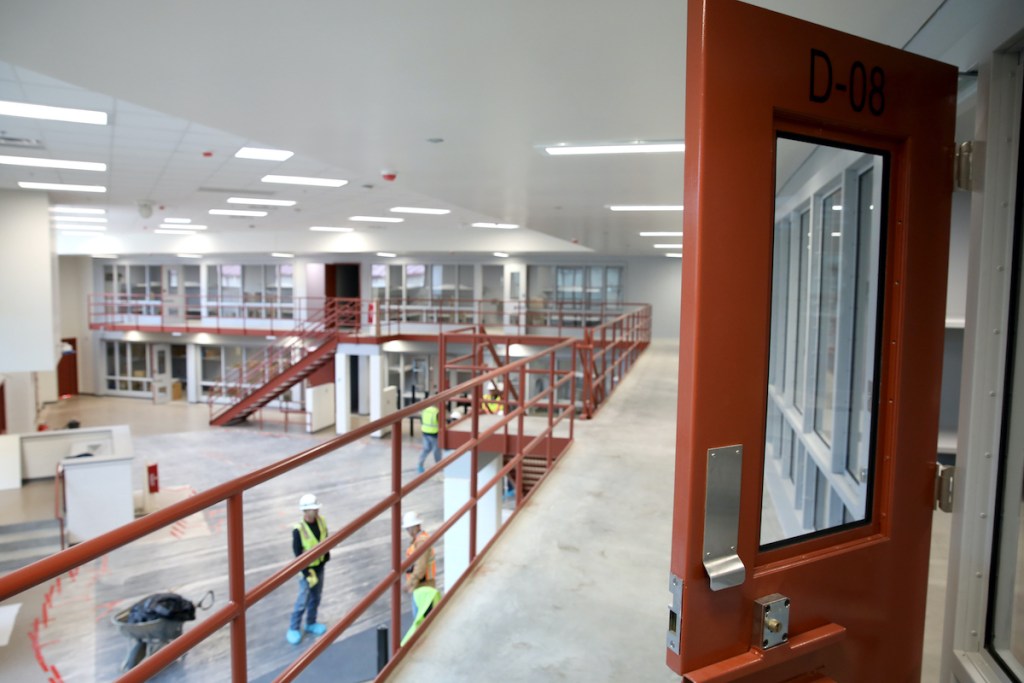It was early July, and Supervisor Das Williams was sitting in his office and going through his mail. As he read a letter from a state criminal justice agency, he let out a big “Woohoo!” “I think I startled some of my staff,” he remembered.
The Board of State and Community Corrections (BSCC) had informed county leaders that, despite repeated statements to the contrary from their sheriff and staff, Santa Barbara was not legally obligated to renovate and add rated beds to its Main Jail as a condition of receiving $80 million in state funding to construct the new North County Jail.
The renovation work was expected to cost tens of millions of dollars, county money Williams has always said would be better spent on alternatives to incarceration. Parts of the aging campus do need to be overhauled, he conceded, but not the entire 819-bed facility, especially with the 376-bed northern branch scheduled to come online this spring. Since the pandemic, Williams noted, Santa Barbara dropped its average jail population from more than 900 to under 600 without being overrun by crime.
“This letter,” Williams said this week, “represents an enormous opportunity to look at what wings it makes sense to upgrade, and what wings to close permanently, to save us an enormous amount of taxpayer dollars that could otherwise go not only to diversion and rehabilitation programs but also to basic public safety services like investigations and patrols.”
It was as recently as a June 1 budget hearing that Sheriff Bill Brown told the supervisors Santa Barbara had “promised” the BSCC it would add more jail beds to satisfy the requirements of the state grant. At the same hearing, County Counsel Mike Ghizzoni, said he “absolutely agreed” with the sheriff’s interpretation of the rules. The supervisors then proceeded with their deliberations with that same understanding.
But in direct contradiction to both Brown and Ghizzoni, the BSCC letter said there are no ― and were no ― “statutory or programmatic requirements that counties increase local capacity” in order to receive funding. “I don’t think he was acting dishonestly,” said Williams, who frequently butts heads with Brown on matters of public safety financing, “but he perpetuated a bad fact that got us bottlenecked into the wrong choices.”
For his part, Brown told the Independent the BSCC altered the grant conditions between when the county received the $80 million in 2012 and today. “That was then, and this is now,” he said. “They have new staff and new administration. Things change.” The letter makes no mention of a policy change, however, and explains adding beds was never “a binding promise.”
Sign up for Indy Today to receive fresh news from Independent.com, in your inbox, every morning.
Brown insisted throughout the budget negotiations, during which his department’s annual allocation was increased by approximately $7 million, that Santa Barbara County needs at least 1,000 jail beds to maintain an acceptable level of public safety. Those beds shouldn’t always be filled, he explained, but it’s important to maintain the extra space in the event of arrest “surges” or other unexpected influxes. Jails, like hospitals, have an ideal operating capacity, he said, and the industry standards for lockups is 85 percent.
In recent years, Brown has championed the jail’s anti-recidivism programs with notable success. He’s also supported alternative means of helping those in the throes of drug addiction or mental health crises. “Nobody wants more than I do to have alternatives to jail for mentally ill and drug addicted people,” he said. “But you also need jail space for those people when they commit serious crimes.… You can have a carrot, but you also need jail as the stick.”
Among those most opposed to the renovation has been Jeff Chambliss, a private defense attorney and president of the Santa Barbara Defenders association. To build a new jail at a total ― and way over budget ― cost of $120 million, on top of spending millions more to upgrade the existing one, would not only run counter to evolving philosophies of criminal justice but also go squarely against local public opinion, he argued. In 2000 and 2010, Chambliss noted, Santa Barbara County voters were asked to increase the sales tax to pay for the new northern branch. In both cases, they soundly rejected the idea.
The BSCC discrepancy wasn’t the first time the Sheriff’s Office cited incorrect information to justify an overhaul of the main campus, Chambliss claimed. Last year, he said, the department attempted to use a legal settlement with Disability Rights California over ADA compliance at the facility to move the project forward. It was only when Chambliss and his group intervened, explaining to the supervisors in private meetings that the settlement did not, in fact, mandate a renovation, that the proposal was tabled. “They were pleasantly surprised,” he said. “They’d gotten another bad fact.”
“I think the board is not getting good information from their staff, and the sheriff is looking for justifications to fund this renovation without putting it to a public vote,” continued Chambliss, suggesting a ballot measure is the only responsible way to determine if jail additions and improvements are how county residents truly want to spend their money. “I think there are a lot of people out there who would be against this,” he predicted, “or at least want more transparency in the process.”
The supervisors are expected to revisit the issue later this summer.
Support the Santa Barbara Independent through a long-term or a single contribution.

